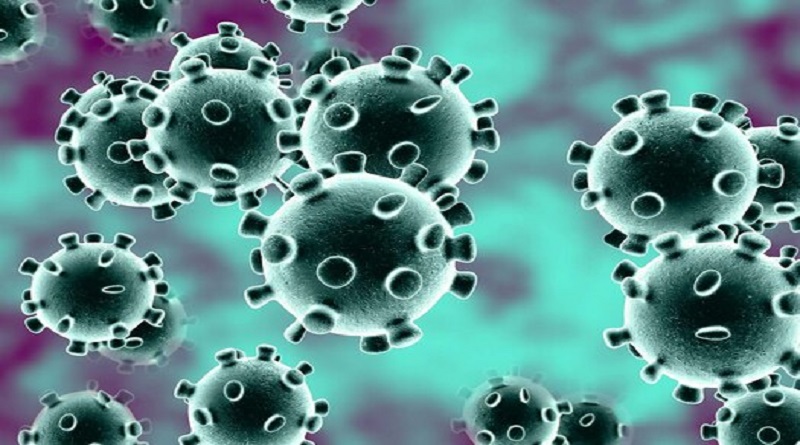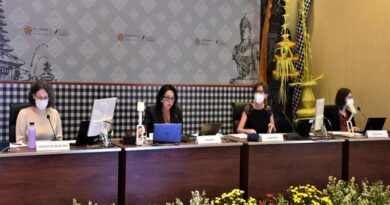UN wants tourism sector to continue fight against plastic pollution during, after COVID-19
The ongoing COVID-19 pandemic has hit the tourism sector hard, putting more than 100 million jobs at risk; as countries begin to recover, new UN recommendations advise that the tourism sector builds back better, continuing its push to fight plastic pollution.
The Recommendations for the Tourism Sector to Continue Taking Action on Plastic Pollution During COVID-19 Recovery were released on Wednesday 22 July 2020 by the Global Tourism Plastics Initiative, led by the United Nations Environment Programme (UNEP) and the World Tourism Organization (UNWTO) in collaboration with the Ellen MacArthur Foundation, which unites the tourism sector behind a common vision to address the root causes of plastic pollution.
Representing 10% of global GDP, tourism is one of the economic sectors hardest hit by the COVID-19 pandemic and may face a decline in international tourist arrivals of 58-78% during 2020, putting 100 to 120 million direct tourism jobs at risk. The sector has responded with a strong focus on health and hygiene, however these measures, if not properly managed, may have an environmental impact such as additional waste generation, water consumption and pollution from chemicals usage.
The recommendations are addressed to tourism stakeholders with the aim of supporting them to continue fighting plastic pollution during the COVID-19 recovery. The document illustrates how reducing the plastic footprint, increasing the engagement of suppliers, working closer with waste service providers, and ensuring transparency on the actions taken, can significantly contribute to a responsible recovery of the tourism sector. They further highlight the importance of cleaning and sanitation procedures as well as ongoing and transparent communication with both staff and guests during and after the pandemic.
“When not properly disposed of, plastic products such as gloves, masks and hand sanitiser bottles end up polluting the natural environment around major tourism destinations,” said Ligia Noronha, Director of UNEP’s Economy Division. “We need to take a science-based approach and support governments, business, and local communities to ensure we are taking the most effective measures to protect hygiene and health without creating pollution and causing harm to our natural environment. These recommendations addressing hygiene and disposable plastic can support tourism sector stakeholders in their efforts towards a responsible recovery.”
Major tourism business associations announce their commitment to fighting plastic pollution in tourism
The recommendations come as major global tourism companies Accor, with 5,000 hotels in 110 countries, Club Med, with close to 80 resorts over four continents, and Iberostar Group, with more than 120 hotels in 19 countries, cement their commitment to fighting plastic pollution and become three of the first official signatories to the Global Tourism Plastics Initiative, along with more than twenty signatories from across all continents, including major industry players and supporting organisations which will act as multipliers.
Announced in January 2020, the Global Tourism Plastics Initiative acts as the tourism sector interface of the New Plastics Economy Global Commitment, which unites more than 450 businesses, governments, and other organisations behind a common vision and targets to address plastic waste and pollution at its source. This Initiative supports UNEP’s global campaign Clean Seas that aims at addressing the root causes of marine litter.
“We want to eliminate guest-related single-use plastic products in our hotels. For each one, we’ve determined a plan in order to remove them and/or define substitute products,” said Chris Cahill, Accor Deputy CEO Hotel Operations & CEO Luxury Brands.
Sabina Fluxà Thienemann, Vice-Chairman and CEO of Iberostar Group says that responsible tourism must lead the way to help tourism companies build back better. “We say this not only as owners or managers of more than 120 hotels in 19 countries, a business responsible for the health and safety of almost 8 million guests a year and the livelihoods of 34,000 employees. We say it as part of an industry that is responsible for our oceans – 80% of our properties sit alongside them,” she said. “Iberostar’s entire operations will be single-use plastic free by 2020, as far as local regulation allows. We’ll be waste-free by 2025, carbon neutral by 2030, and launching our roadmap for our transparent and time bound goals to get there by the end of this year.”
The World Wide Fund for Nature (WWF) is a member of the Global Tourism Plastics Initiative Advisory Committee. John Duncan, Lead of WWF No Plastics in Nature Initiative, says that plastic has become one of the most commonly used materials of the 21st century due to its flexible and durable qualities, but it brings with it many challenges, some of which we are only realising now.
“Plastic pollution is now found throughout food-webs in every known marine ecosystem and this problem is growing as every day more plastic is entering our natural environment at an unprecedented rate. We urgently need to rethink when and how we use plastic in our lives and businesses,” he said. “The tourism sector has a key role to play in addressing this problem and WWF is encouraging tourism industry leaders, consumers and policymakers to join the GTPI and respond to this challenge. We can, and need to, do more to create the world we want to live in. Together.”




